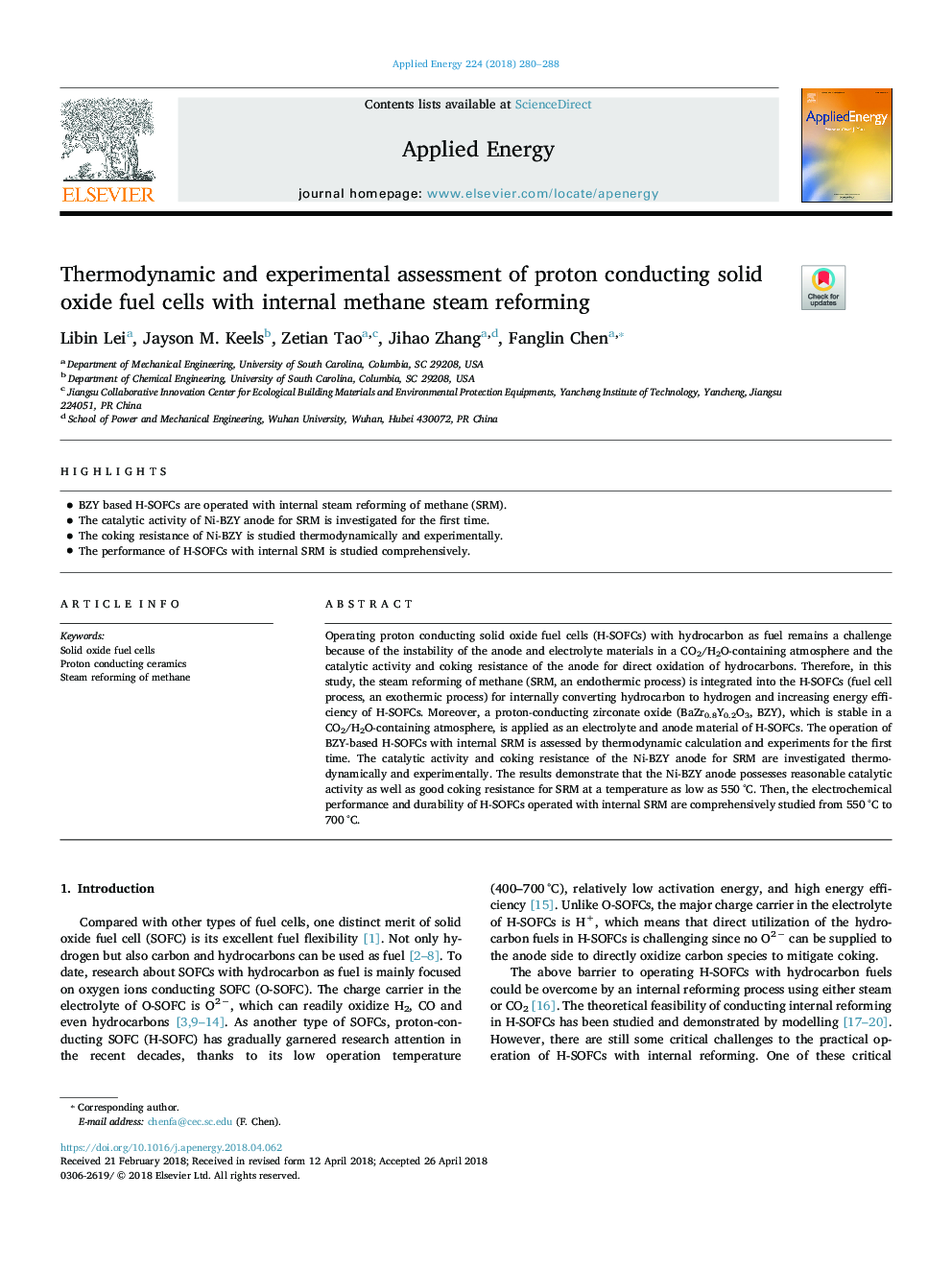| Article ID | Journal | Published Year | Pages | File Type |
|---|---|---|---|---|
| 6679942 | Applied Energy | 2018 | 9 Pages |
Abstract
Operating proton conducting solid oxide fuel cells (H-SOFCs) with hydrocarbon as fuel remains a challenge because of the instability of the anode and electrolyte materials in a CO2/H2O-containing atmosphere and the catalytic activity and coking resistance of the anode for direct oxidation of hydrocarbons. Therefore, in this study, the steam reforming of methane (SRM, an endothermic process) is integrated into the H-SOFCs (fuel cell process, an exothermic process) for internally converting hydrocarbon to hydrogen and increasing energy efficiency of H-SOFCs. Moreover, a proton-conducting zirconate oxide (BaZr0.8Y0.2O3, BZY), which is stable in a CO2/H2O-containing atmosphere, is applied as an electrolyte and anode material of H-SOFCs. The operation of BZY-based H-SOFCs with internal SRM is assessed by thermodynamic calculation and experiments for the first time. The catalytic activity and coking resistance of the Ni-BZY anode for SRM are investigated thermodynamically and experimentally. The results demonstrate that the Ni-BZY anode possesses reasonable catalytic activity as well as good coking resistance for SRM at a temperature as low as 550â¯Â°C. Then, the electrochemical performance and durability of H-SOFCs operated with internal SRM are comprehensively studied from 550â¯Â°C to 700â¯Â°C.
Related Topics
Physical Sciences and Engineering
Energy
Energy Engineering and Power Technology
Authors
Libin Lei, Jayson M. Keels, Zetian Tao, Jihao Zhang, Fanglin Chen,
